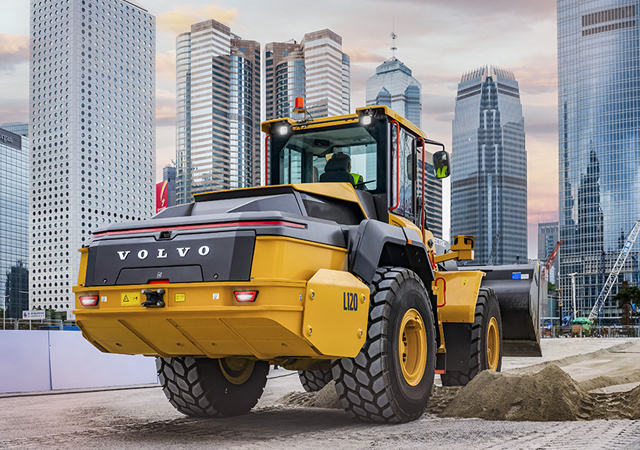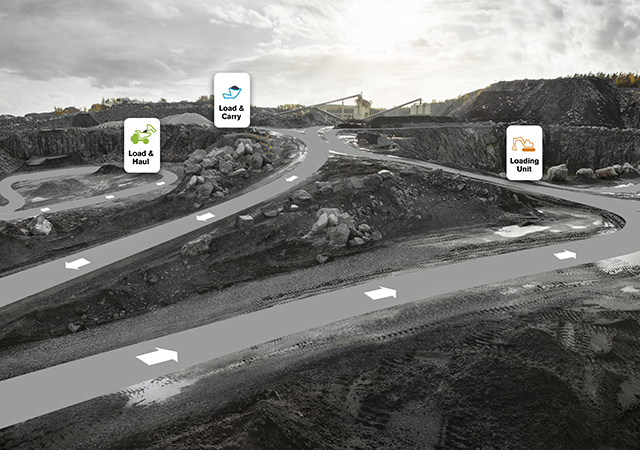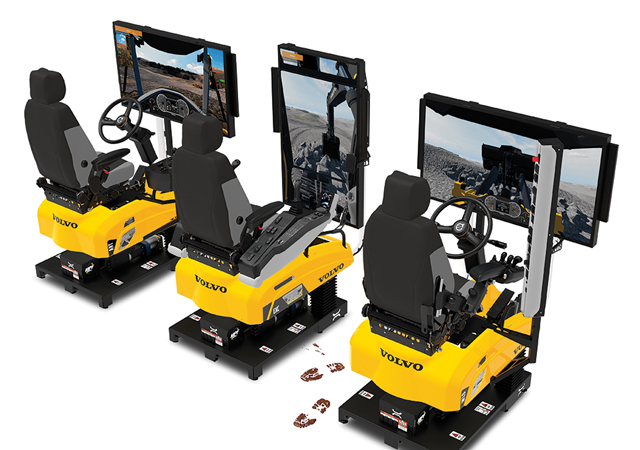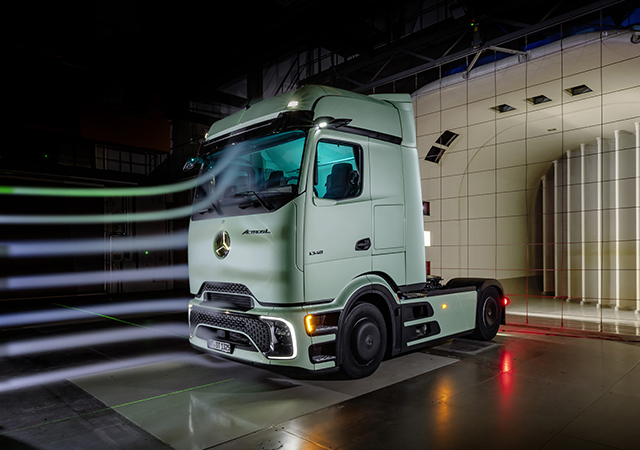
 Volvo CE electric machines were tested at customer sites in the UAE.
Volvo CE electric machines were tested at customer sites in the UAE.
Electric construction equipment, when powered by renewable energy, holds the potential to slash emissions from construction contractors’ and quarry operators’ operations – and leading construction solutions provider Volvo Construction Equipment (Volvo CE) is making exciting progress with this technology in the Middle East.
Last November, Volvo CE made headlines by announcing that it would test its electric machines – including the ECR25 Electric compact excavator, the 23-ton EC230 Electric excavator and the 20-ton L120 Electric wheel loader – at customer sites in the UAE.
Since then, the machines have been tested extensively in applications including readymix concrete production, recycling, waste management, and infrastructure projects, with encouraging results. The electric machines have demonstrated strong performance, while significantly reducing emissions.
“This success strengthens our confidence in a successful launch of these electric models in the UAE, which we are aiming for in the second half of 2024. We believe this is a significant step forward for sustainable construction in the region, and we’re excited to be at the forefront of this change,” says Ilkay Fidan, Commercial Manager for Market Area Middle East at Volvo CE.
 |
|
Fidan ... helping customers to reduce emissions. |
“That doesn’t mean Volvo customers have to wait for emobility to start decarbonising, however. Even using diesel-powered equipment, we are helping customers in the Middle East to reduce emissions from their operations by targeting fuel consumption,” he adds.
Save emissions by saving fuel
Volvo CE has a strong reputation for producing among the most fuel-efficient machines on the market. Volvo wheel loaders, for example, incorporate a remarkable blend of advanced engine technology, optimal powertrain configuration, Optishift, enhanced cooling systems, intelligent load-sensing hydraulics, Eco-pedal system and auto engine shutdown. This winning combination maximises performance while minimising energy losses and fuel consumption.
Data-driven improvements
However, there are many other ways, besides improving machine design, in which Volvo CE is cutting fuel consumption – and digitalisation is the key. Volvo CareTrack telematics data establishes a clear baseline understanding of the customer’s operating environment and fuel consumption, and enables measurement over time. The Site Simulation service then combines machine data with advanced 3D site survey technology to create a digital twin of the customer’s jobsite that determines the optimum machine numbers, types and specifications, as well as the ideal site layout and driving routes to minimise idling and travel distances.
 |
|
The Site Simulation service combines machine data with advanced 3D site survey technology to create a digital twin of the customer’s jobsite. |
In addition to fleet and site set-up, operator technique has a major impact on fuel consumption and CareTrack data can, therefore, also identify opportunities for improvement with Volvo CE’s EcoOperator training, conducted on Volvo simulators that enable operators to hone their skills with zero emissions.
Learning need not be limited to courses, however. Volvo Co-Pilot with Load Assist, for example, includes an Operator Coaching app that offers real-time advice on the operator’s screen to adjust their technique for greater fuel efficiency and cement positive habits over time. Moreover, the Volvo Co-Pilot Assist family, in general, can help reduce fuel consumption by emphasising precision and productivity and minimising unnecessary work.
Another exciting solution is Connected Map, which displays the real-time location of all on-site machines and vehicles, accessible on operators’ cab screens or via the Office Portal. This empowers operators to reduce fuel consumption by avoiding congested areas and better coordinating loading and hauling tasks.
Tailored combinations of digital services
Regardless of the solution, Volvo CE and its Middle East dealers follow a four-step process – Insight, Analyse, Improve, and Sustain – in a tailored CO2 reduction programme to identify areas for improvement, implement initiatives for fuel and emissions savings, and continually measure and enhance performance.
 |
|
Volvo CE’s EcoOperator training is conducted on Volvo simulators. |
“The advantage of this approach is its bespoke nature, designed to align with specific customer requirements and budget considerations. If a ready-made solution is not available, it also presents an opportunity for us to collaborate with customers and develop custom solutions,” Fidan says.
Volvo’s longstanding commitment
Environmental care has been a core Volvo brand value since the early 1970s. As the former CEO, Pehr G Gyllenhammar, said at the UN’s Environmental Protection Conference in 1972: “We are part of the problem, and therefore we must be part of the solution.”
The company is fully committed to reducing its carbon footprint as a manufacturer and working hand in hand with its customers to achieve the same goal.
“This is a shared journey we embark on together for the sake of our planet, and we believe that combining our machines with tailored digital services and collaborating with our customers as partners will lead to even greater accomplishments and accelerated progress. Change starts here!” Fidan concludes.
Volvo Construction Equipment (Volvo CE) is a global leader in construction solutions, delivering premium products and services that combine power and performance with a more sustainable way of working.








.jpg)




.jpg)




























.jpg)



































